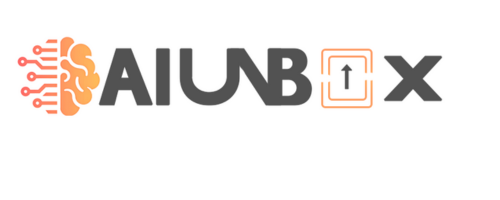In today’s digital world, content is everywhere — from websites and blogs to YouTube videos and social media posts. But even the most well-written content won’t reach the right audience without the right keywords.
That’s where keyword research comes in. And now, with Artificial Intelligence (AI) getting smarter by the day, it’s transforming how we find the most profitable — or high ROI (Return on Investment) — keywords.
Whether you’re a blogger, business owner, or digital marketer, understanding how AI helps with keyword research in 2025 can give you a big edge. In this guide, we’ll explore what AI keyword research is, how it works, and how you can use it to find keywords that drive traffic, leads, and sales.
What Is AI Keyword Research?
AI keyword research is the process of using artificial intelligence tools and algorithms to discover the best keywords for your content, products, or ads. These tools don’t just pull out popular terms — they analyze user behavior, search trends, competitor strategies, and even voice and visual search data.
Instead of spending hours digging through spreadsheets and keyword planners, AI tools can now automatically identify terms that bring the highest ROI, saving you time and increasing accuracy.
Why AI Keyword Research Matters in 2025 ?
The way people search online has changed now. Today, people use voice assistants, ask longer questions, and search in multiple languages. Search engines like Google are smarter too — they use AI to understand search intent rather than just matching keywords.
This makes traditional keyword research harder and less reliable. AI-based keyword tools can adapt to these changes and provide insights you might miss using old-school methods.
Here’s why AI keyword research matters:
- It understands search intent better (e.g., “how to fix a leaky tap” vs. “plumber near me”).
- It predicts future trends based on real-time data.
- It handles vast amounts of data quickly and accurately.
- It helps uncover untapped keywords with high potential ROI.
How AI Tools Do Keyword Research
Let’s break down how AI actually finds high-ROI keywords:
- Analyzing Massive Datasets
AI tools can scan millions of search queries, web pages, and ads in seconds. They gather data from Google, Bing, Amazon, YouTube, and even social media platforms. The goal is to identify which keywords people are using, how often, and in what context. - Understanding Search Intent
Not all searches are created equal. Some people want to buy (transactional), some want to learn (informational), and others are just browsing (navigational). AI can categorize search intent and recommend keywords that are more likely to lead to conversions. - Predicting Trends
Using machine learning, AI tools can spot trending topics before they become mainstream. This means you can create content or run ads ahead of your competition. - Competitor Analysis
AI can analyze your competitors’ websites and ads to find out which keywords they rank for, which ones bring them traffic, and where there might be keyword gaps you can target. - ROI Prediction
Some advanced AI tools even predict how much return a keyword might give you. They look at things like average cost-per-click (CPC), search volume, conversion rates, and competition levels to estimate how valuable a keyword really is.
High-ROI Keywords: What Makes Them Valuable?
Not all keywords are worth targeting. Some might have lots of searches but bring in very little revenue. Others might be too competitive or irrelevant to your audience.
Here’s what makes a keyword high-ROI:
- High Commercial Intent: People searching for it are ready to buy or take action.
- Low Competition: Not too many businesses are fighting for the same keyword.
- High Search Volume: Enough people are actually searching for it.
- Relevant to Your Business: The keyword closely matches your products or services.
- Good Conversion Potential: People who click are likely to become customers.
Top AI Tools for Keyword Research in 2025
There are many AI-powered keyword research tools available today. Here are a few popular ones that are known for finding high-ROI keywords:
- Surfer SEO
Surfer uses AI to recommend keywords based on your competitors’ content. It shows keyword clusters, content gaps, and even recommends word counts and structure. - SEMrush with AI Insights
SEMrush has added AI features that help predict keyword trends, traffic potential, and even automatic content topic suggestions. - Jasper AI + SEO Mode
Jasper is a content-writing AI that can now do keyword research with its integrated SEO mode. It suggests keywords and writes optimized content around them. - ChatGPT with Web Browsing
ChatGPT can also help generate keyword ideas based on trending topics, niche markets, and more — especially with real-time web browsing enabled. - Google Keyword Planner (with AI integrations)
While still free, Google’s keyword planner is getting smarter by integrating machine learning to give better suggestions and forecasts. - Ubersuggest
Developed by Neil Patel, Ubersuggest now includes AI features to help with keyword grouping, traffic estimates, and competition analysis.
Real-Life Example: AI in Action
Let’s say you run an online store selling eco-friendly water bottles. You want to create content and ads that attract customers who are ready to buy.
Using a traditional keyword tool, you might find terms like:
- “best water bottles” (high search volume but very competitive)
- “eco-friendly bottles” (low volume, hard to rank for)
But using an AI keyword research tool, you might discover:
- “BPA-free water bottles for gym use”
- “lightweight reusable bottles for hikers”
- “personalized stainless steel bottles under $20”
These keywords are more specific, have clear purchase intent, and are easier to rank for — making them high-ROI opportunities.
Tips for Using AI Keyword Tools Effectively
- Start with Seed Keywords
Use basic terms related to your business as your starting point. The AI tool will expand on them with related, longer-tail keywords. - Use Filters Wisely
Filter results by country, language, device, or search intent to get more targeted suggestions. - Check Keyword Difficulty
Don’t just go for high-volume terms. Look at how hard it is to rank for them. A medium-volume, low-competition keyword often performs better. - Group Keywords into Clusters
AI tools can help you group similar keywords into clusters so you can create pillar pages and supporting content. - Track Performance
After publishing content or running ads, track how your keywords are performing. Most tools offer real-time analytics and recommendations for updates.
What’s Next? Future of AI in Keyword Research
In 2025 and beyond, AI keyword research is expected to become even more advanced. Here’s what we might see:
- Real-time voice search analysis: AI will track voice search data from smart speakers and mobile assistants.
- Multilingual keyword suggestions: Tools will offer global SEO support with auto-translation and regional trends.
- Automated content + keyword combo: AI will not only find the keywords but also generate optimized content around them.
- Visual search integration: Tools will analyze image search data (think Google Lens) to suggest relevant keywords.
Conclusion
AI keyword research is no longer a futuristic concept — it’s happening right now, and it’s changing the way we create content and reach customers. By using AI to uncover high-ROI terms, you can build smarter SEO strategies, reduce ad spend, and grow your traffic with less effort.
Whether you’re a solo blogger, a growing startup, or a large e-commerce brand, AI tools can help you find the keywords that truly matter. So, instead of guessing what your audience is searching for, let AI do the heavy lifting and guide you toward better results.

